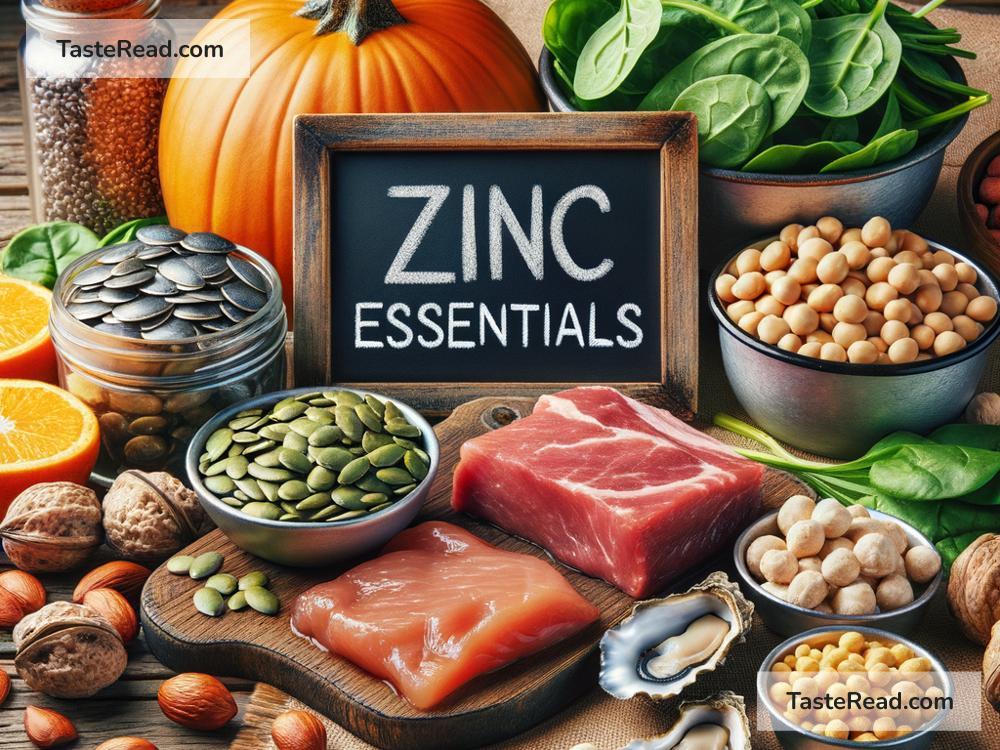The Importance of Zinc in Nutrition: A Simple Guide to a Vital Mineral
When people talk about nutrients and minerals, we often hear about calcium for strong bones or iron for healthy blood. But one mineral that doesn’t get much attention is zinc—yet it’s just as important for our health as the more well-known nutrients. In this blog, we’ll dive into the world of zinc to understand what it is, why it’s essential for your body, and how you can make sure to get enough of it through your diet.
What Is Zinc?
Zinc is a mineral that your body needs in small amounts to stay healthy and strong. It doesn’t provide energy like carbohydrates or fats, but it plays a crucial role in many processes in your body. Without enough zinc, your body simply can’t function properly.
The body can’t make zinc on its own, and we don’t have a way to store it. That’s why it’s important to get enough zinc from the food we eat every day. Even though we need only small amounts of zinc, a deficiency can lead to health problems.
Why Is Zinc Important for Your Body?
Zinc is a multitasker in your body—it has a hand in many different processes. Let’s look at why zinc is so important:
-
Boosts Your Immune System
One of zinc’s main jobs is to help your immune system work properly. Your immune system is like your body’s defense system, protecting you from illnesses and infections. Zinc helps your body create and activate white blood cells, which fight off bacteria, viruses, and other invaders. -
Helps Your Body Heal
If you’ve ever had a cut or scrape, your body needed zinc to repair the skin and tissue. Zinc plays a big role in wound healing, so it’s important for recovery after injuries. -
Supports Growth and Development
Zinc is especially important for kids, teens, and pregnant women because it helps the body grow and develop. It contributes to the creation of DNA and proteins, which are the building blocks of every cell in the body. -
Keeps Your Senses Sharp
Did you know that zinc is essential for your sense of taste and smell? Without enough zinc, you might find food tastes different, or you may lose your ability to smell properly. -
Promotes Skin Health
Zinc is often found in creams and ointments for treating skin conditions like acne or eczema. That’s because zinc helps regulate inflammation and supports the health of your skin. -
Aids Reproductive Health
Zinc plays an important role in fertility for both men and women. It supports hormone production and contributes to healthy eggs and sperm.
Symptoms of Zinc Deficiency
Getting enough zinc is essential because deficiency can lead to problems like:
- Weakened immune system: You may get sick more often or take longer to recover.
- Slow wound healing: Cuts and scrapes might take longer to heal.
- Growth delays in children: Zinc is critical for development, so kids who don’t get enough may grow more slowly.
- Loss of taste or smell: A lack of zinc can affect your senses.
- Hair loss: Zinc deficiency can lead to thinning or loss of hair.
- Skin problems: You might notice dry, itchy skin or acne.
People who are most at risk for a zinc deficiency include vegetarians (since zinc is often found in animal foods), pregnant or breastfeeding women, and people with certain medical conditions like Crohn’s disease or diabetes.
How to Get Enough Zinc in Your Diet
The good news is that zinc is found in many different foods. Eating a healthy, balanced diet will usually give you all the zinc you need. Here are some foods that are high in zinc:
- Meat: Beef, pork, and chicken are excellent sources of zinc.
- Seafood: Oysters are the top zinc-rich food, but other seafood like crab and shrimp also provide plenty of zinc.
- Dairy: Milk, cheese, and yogurt contain zinc and are great options for adding this mineral to your diet.
- Whole grains: Bread, oats, and cereals made with whole grains contain zinc.
- Legumes: Beans, lentils, and chickpeas are plant-based sources of zinc.
- Nuts and seeds: Cashews, pumpkin seeds, and sunflower seeds pack a good amount of zinc.
- Eggs: Eggs are another great, versatile source of zinc.
If you don’t get enough zinc from food, you might consider taking a supplement, but make sure to talk to your doctor first. Too much zinc can cause side effects like nausea and headaches.
How Much Zinc Do You Need?
The amount of zinc your body needs depends on your age and gender. Here are general guidelines:
- Children: 2-9 milligrams per day
- Adult men: 11 milligrams per day
- Adult women: 8 milligrams per day
- Pregnant or breastfeeding women: 11-12 milligrams per day
Most people can meet these needs through their diet.
Final Thoughts
Though zinc may not be as famous as calcium or iron, it’s a vital nutrient that helps your body thrive. From supporting your immune system to promoting skin health, zinc plays many important roles in keeping you healthy. By eating a balanced diet full of zinc-rich foods, you can make sure your body gets the zinc it needs every day.
So, the next time you’re planning a meal, take a moment to think about zinc—your body will thank you for it!


